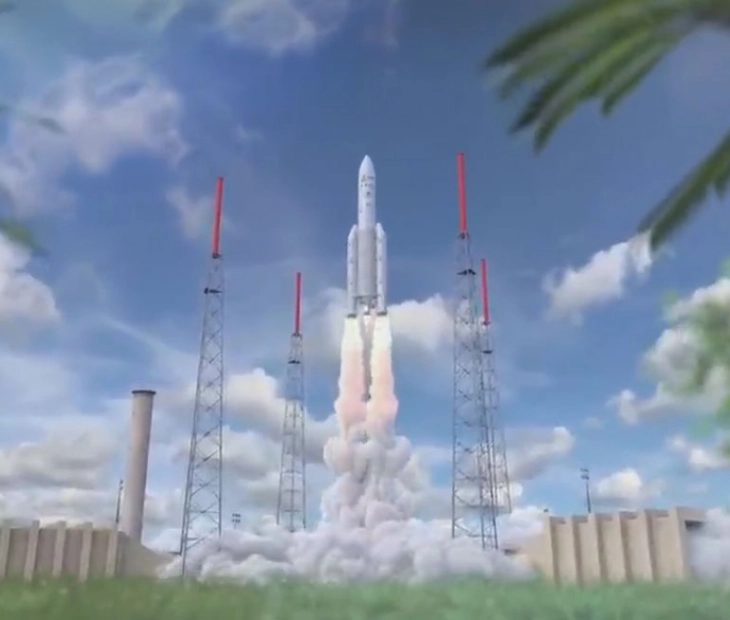World's most powerful space telescope lifts off on far-flung mission

New York, 25 December 2021 (dpa/MIA) - The James Webb Space Telescope (JWST), the most powerful ever built, was launched into space on Saturday to explore the oldest galaxies in the universe.
The telescope was built jointly by space agencies in Europe, the US and Canada, and its launch has been planned for decades.
Designed to answer questions about the universe, the telescope will look further back in time than ever before to 400 million years after the Big Bang.
It was launched from the European spaceport Kourou in French Guiana on board an Ariane launch vehicle, for a four-week journey to its target orbit, some 1.5 million kilometres away.
The launch was livestreamed on the NASA on website. As the rocket launched, NASA spokesperson Rob Navias said "Lift-off, from a tropical rainforest to the edge of time itself, James Webb begins a voyage back to the birth of the universe."
The telescope will use a 25-square-metre mirror to deliver images of the early universe, in a mission is scheduled to last 10 years.
"We have this telescope on top of this rocket. A telescope that 10,000 plus people have worked on in many ways. Together with that telescope, all the hopes and dreams of those individuals and also tens of thousands of scientists, some of them not even born, that will benefit from these data, are there with them, waiting for these last minutes of countdown for its journey to space," NASA science director Thomas Zurbuchen said ahead of the launch.
The first data and images from the telescope are not expected before summer.
At launch, NASA had identified 344 critical points in the mission that threatened the telescope's planned deployment.
The telescope took about 30 years to develop and cost some 10 billion dollars. It is significantly more powerful than the Hubble telescope, which went into orbit in 1990 and remains in operation.
The launch was initially planned for earlier this month, but several setbacks including a communications issue and an incident requiring an extra round of checks on the telescope pushed the date back.
The team of 50 researchers from around the world taking part in the Cosmos-Webb programme, which will use JWST to survey a patch of sky near the constellation Sextans during the telescope's first year in operation.
The cosmologists will map the dark matter around galaxies with the aim of unlocking the secrets of the mysterious substance that makes up the majority of matter in the universe.







